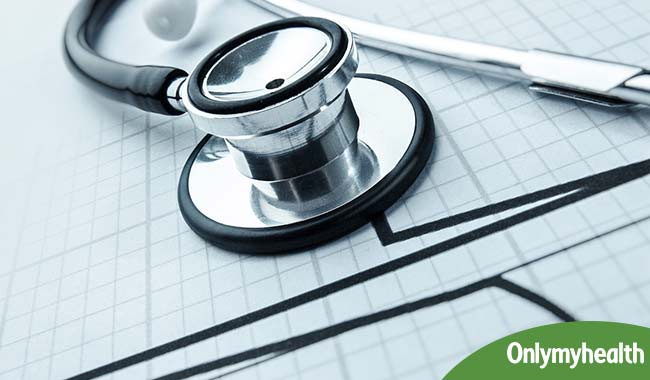
Tachycardia is a medical condition of an abnormally fast heart rate (heart rate of more than 100 beats per minute). A healthy adult’s heart beats at a rate of 60 to 100 times per minute. If you have tachycardia, the rate at which it beats may get faster than the normal heart rate. In this condition, the rate of beating in the upper chambers or lower chambers of the heart, or both increases significantly. It starts with a series of early beats in the atria speeding up the heart rate.
When the heart beats faster, it pumps less efficiently and blood triggers slow blood flow to the rest of the body. In fact, the blood flow to the heart itself is reduced. Fast heartbeat doesn’t allow enough time for the heart to fill before it contracts, so blood flow to the rest of the body is compromised. Moreover, it reveals that there is an increase in demand for oxygen by the myocardium (heart muscle). If the condition persists, it may lead to myocardial infarction (heart attack), which occurs because oxygen-starved myocardial cells die.

Causes
Tachycardia occurs when there is a disruption of the normal electrical impulses that control the rhythm of your heart's pumping action. The exact cause of tachycardia can't be determined. However, the following may cause or contribute to disrupting the rhythm of the heart’s pumping action.
- Damage to heart tissues.
- Congenital defects or abnormalities (abnormal electrical pathways present at birth).
- Poor blood supply.
- Health conditions such as heart failure, heart muscle disease, coronary artery disease (atherosclerosis), heart valve disease (cardiomyopathy), tumours or infections.
- High blood pressure.
- Unhealthy habits such as smoking, drinking too much alcohol, recreational drug abuse and drinking too many caffeinated beverages.
- Fever.
- Side-effect of medications.
- Imbalance of electrolytes.
- Overactive thyroid (hyperthyroidism).

[Read: Supplements for Heart Health]
Medical therapy is not needed to treat many patients with tachycardia, unless the episodes of rapid heart rate are prolonged or occur often. In such a case, your health care practitioner may recommend therapies, such as carotid sinus massage, valsalva maneuver, dive reflex, sedation and lifestyle modifications (restricting coffee, alcohol, tobacco use).
The treatment option of tachycardia depends on what caused the condition, patient's age and his/her overall health. Although, the aim of all the treatment therapies is to slow down accelerated heartbeat, prevent subsequent episodes of tachycardia and reduce its medical complications. Sometimes, when a doctor is not able to figure out the underlying cause, one may try out different therapies or a combination of therapies.
Read more articles on Heart Health.
Read Next
How is Heart Blockage Treated?
How we keep this article up to date:
We work with experts and keep a close eye on the latest in health and wellness. Whenever there is a new research or helpful information, we update our articles with accurate and useful advice.
Current Version